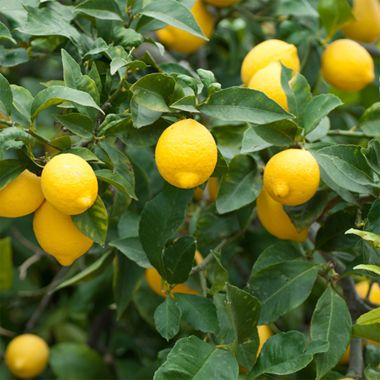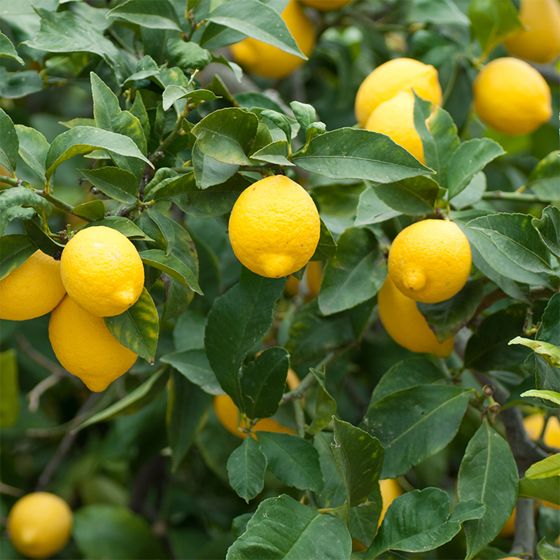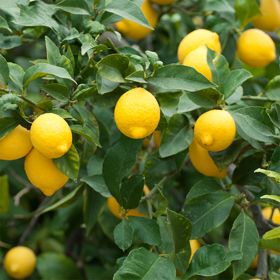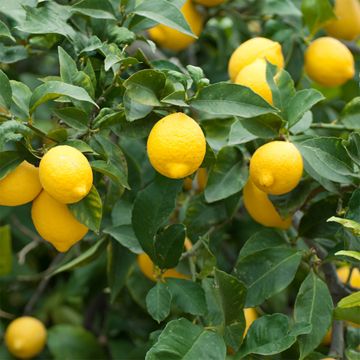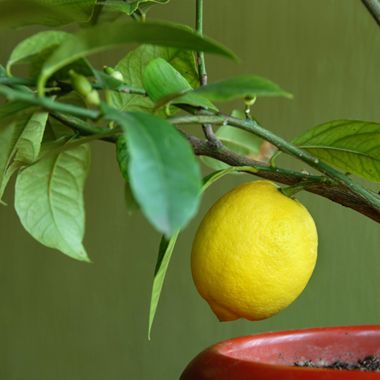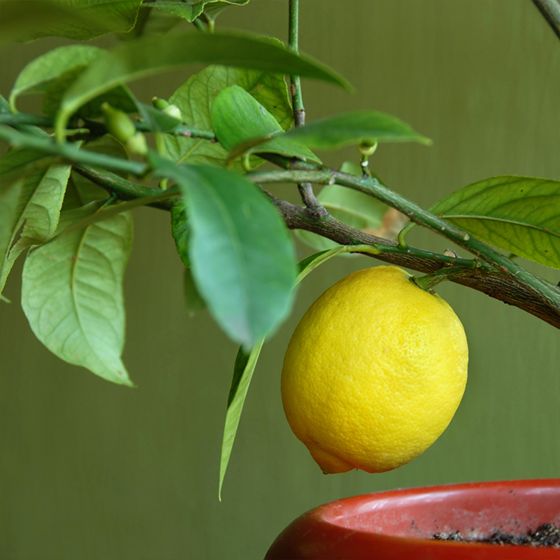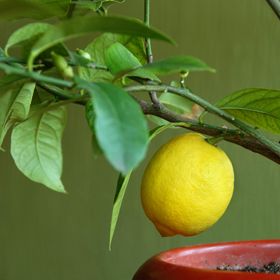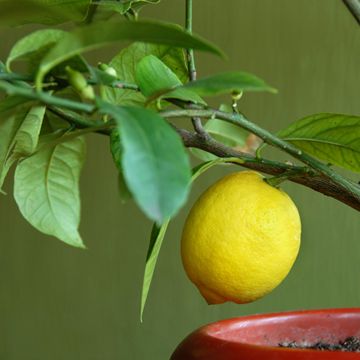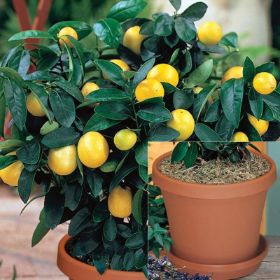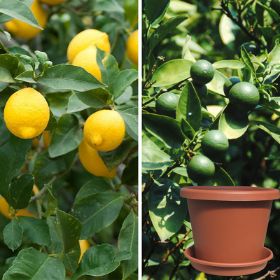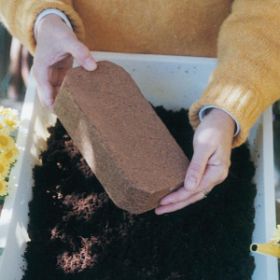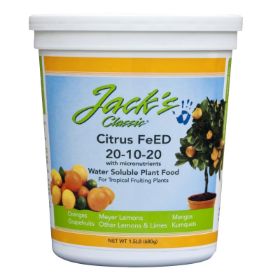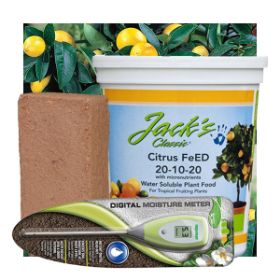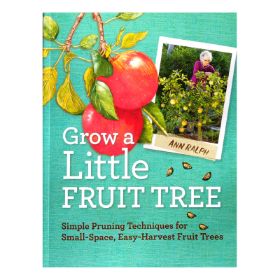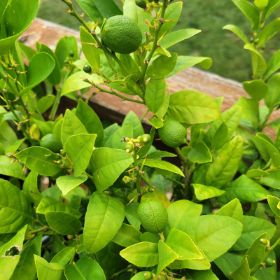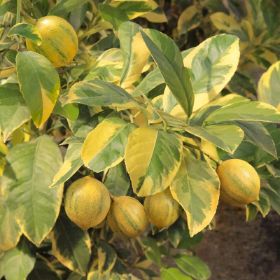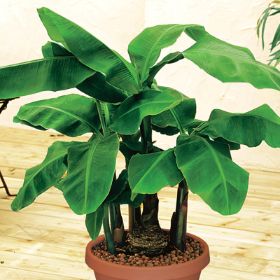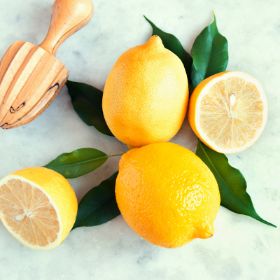Meyer Lemon Tree
Description
Why grow a Meyer lemon tree?
A favorite of home gardeners and chefs, the improved Meyer lemon tree adapts beautifully to life as a dwarf citrus tree—perfect for growing in containers indoors or out. In temperate climates, it can be planted in the ground and enjoyed as a vibrant backyard lemon tree.
This is the perfect plant to accent your patio or porch—with the bonus of fresh, sweet lemons! Enjoy attractive green leaves, fragrant white blossoms, and citrus-scented flowers, followed by juicy, floral fruit. These lemons are prized for baking desserts, enhancing savory dishes, and mixing into fantastic cocktails. Homesteaders will enjoy preserving the abundance. These lovely citrus trees may even bloom again while fruit is still ripening, allowing for continuous or near year-round harvesting.
What is the fruit like?
Meyer lemons are a hybrid between traditional lemons and mandarin oranges. They’re much sweeter and less acidic than regular lemons—making them ideal for those who prefer a mild, sweet citrus flavor.
The skin is thin, smooth, and ripens to a rich, golden yellow—like the color of an egg yolk. Fruits are smaller and more rounded than standard lemons, with dark yellow pulp. Meyer lemons are also rich in vitamin C, folate, and powerful antioxidants like flavanones..
How do I grow this tree?
Whether grown in the ground or as a potted lemon tree, Meyer lemons are both beautiful and easy to maintain. In the ground, trees may reach up to 10 feet tall. In containers, growth is naturally limited—making them an excellent choice for balconies, patios, or sunrooms.
Pruning helps keep the plant compact and encourages a fuller shape. This is a self-pollinating citrus tree, so outdoor plants will produce fruit naturally. Indoor trees can be hand-pollinated using a soft paintbrush to transfer pollen between blooms.
Meyer lemon trees thrive in moist, but well-draining soil. Allow the soil to dry slightly between deep waterings. A moderately to slightly acidic pH is ideal. Regular feeding with a citrus-specific, high-nitrogen fertilizer during spring and summer helps support fruiting. With proper care, your first harvest can arrive within just 1–2 years.
These citrus trees need at least 6 hours of sunlight daily. In hot climates, morning sun with afternoon shade is ideal. They are heat-tolerant, but not cold-hardy, so in Zones below 8, bring container trees indoors before the first freeze. Meyer lemon trees are more disease-resistant than other varieties, making them a reliable and rewarding choice for any gardener.
Why They’re Hard to Find in Stores
Meyer lemons are rarely found in grocery stores due to their thin skins and short shelf life—making them a true treat for home growers. Their unique flavor and fragrance set them apart from standard lemons.
Bring Home the Best Lemon Tree for Containers
Buy a Meyer Lemon Tree online and enjoy this beautiful, compact citrus plant that rewards you with sweet, homegrown lemons right from your own patio, sunroom, or backyard.
Survival Guaranteed!
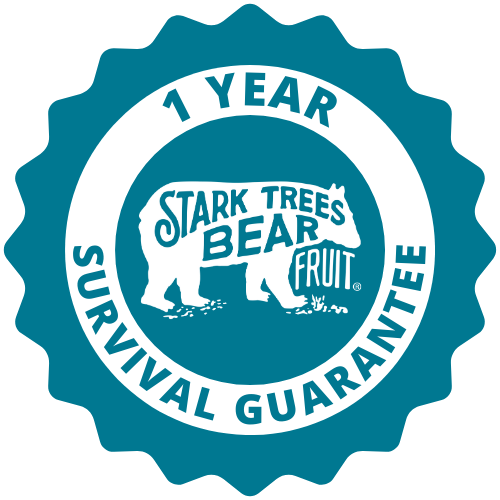

Since 1816, Stark Bro’s has promised to provide customers with the very best fruit trees and plants. It’s just that simple. If your trees or plants do not survive, please let us know within one year of delivery. We will send you a free one-time replacement, with a nominal shipping fee of $9.99. If the item in question is not available, we can issue a one-time credit to your account equaling the original product purchase price or issue you a refund. Read more about our warranty policy.
Characteristics
| Bloom Color | White |
| Fruit Color | Yellow |
| Fruit Size | Small - Medium |
| Hardiness Zone Range | 2 - 11, Outdoor Planting: 8 - 11 |
| Pollination | Self-Pollinating |
| Shade/Sun | Full Sun |
| Soil Composition | Loamy |
| Soil Moisture | Well Drained - Average Moistness |
| Soil pH Level | 5.5 - 6.5 |
| Taste | Sweet, Tart |
| Texture | Firm, Juicy |
| Years to Bear | 1 - 2 |
Size & Spacing
Mature Size
Recommended Spacing
Zone Compatibility
Pollination
This variety is self pollinating.
Related Assortments
Available in these money-saving assortments
We bundle many of our popular products in assortments with other items that compliment each other. Plus, when you purchase an assortment, you save money compared to buying each item individually!
Tools & Supplies
Planting & Care
Learn all about how to grow citrus trees in The Growing Guide. An entire section of our website dedicated to your growing success.

